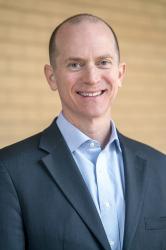Those of us who deal with ideas can often throw words around without being sufficiently careful about their meaning or attentive to their impact. We can be tempted to use terms to make a splash or win an argument at the expense of complexity.
Which Liberalism?
You see this today with everyone condemning or praising liberalism. The term has become so vague that it increasingly means “stuff I don’t like” to some and “progress and freedom” to others.
But like most movements in intellectual history, liberalism is a mixed bag and more complicated than serves our purposes for a short essay or a tweet. The liberal tradition has some serious philosophical weaknesses, especially in anthropology. It has also contributed to the development of political and religious liberty. There are an increasing number of Catholic scholars who say they don’t like liberalism in America. Which liberalism? The radical autonomy part that undermines human flourishing or liberal tradition that allowed Catholics to build churches and an entire private school system?
Girard on Nietzsche
I’ll have more to say about liberalism and the pre-liberal origins of political liberty another time, but here is a good reminder from French anthropologist and social philosopher, Rene Girard, about the responsibility of philosophers, even minor league ones like me, about the importance of being responsible in our use of language.
 In one of the later chapters of I See Satan Fall Like Lightening, Girard analyzes Nietzsche’s critique of Christianity, the problem of ressentiment and what Nietzsche saw as the West’s weakness in its concern for victims.
In one of the later chapters of I See Satan Fall Like Lightening, Girard analyzes Nietzsche’s critique of Christianity, the problem of ressentiment and what Nietzsche saw as the West’s weakness in its concern for victims.
Girard quotes from Nietzsche’s Will to Power ( I added a bit more from Nietzsche than Girard uses).
Nietzsche writes:
Through Christianity, the individual was made so important, so absolute, that he could no longer be sacrificed: but the species endures only through human sacrifice—All “souls” became equal before God: but this is precisely the most dangerous of all possible evaluations! If one regards individuals as equal, one calls the species into question, one encourages a way of life that leads to the ruin of the species: Christianity is the counter-principle to the principle of selection.
Nietzsche argues that all that is left in a Christian culture is self-sacrifice, but self-sacrifice doesn’t have any positive effect on “general breeding” or the “prosperity of the species” Nietzsche continues:
The species requires that the ill-constituted, weak, degenerate, perish: but it was precisely to them that Christianity turned as a conserving force; it further enhanced that instinct in the weak, already so powerful, to take care of and preserve themselves and to sustain one another. What is “virtue” and “charity” in Christianity if not just this mutual preservation, this solidarity of the weak, this hampering of selection? What is Christian altruism if not the mass-egoism of the weak, which divines that if all care for one another each individual will be preserved as long as possible? If one does not feel such a disposition as an extreme immorality, as a crime against life, One belongs with the company of the sick and possesses its instincts oneself —
Nietzsche concludes:
Genuine charity demands sacrifice for the good of the species—it is hard, it is full of self-overcoming, because it needs human sacrifice. And this pseudo-humaneness called Christianity wants it established that no one should be sacrificed…
Girard’s analysis of Nietzsche is more complex than I can lay out here, but he notes Nietzsche’s rhetorical use of language had profound influence on German National Socialism. Girard writes:
By insanely condemning the real greatness of our world [a concern for victims] not only did Nietzsche destroy himself, but he suggested the terrible destruction that was later done by National Socialism. The Nazis perceived acutely that the grotesque “genealogy” of Nietzsche would not be enough to vanquish the Judeo-Christian tradition. The Nazis could not wait for the superior human, Nietzsche’s Overman, to emerge through peaceful historical events. After their conquest of power they disposed of resources much superior to those of an unhappy philosopher gone mad.
To bury the modern concern for victims under millions and millions of corpses there you have the national Socialist way of being Nietzschean.
But some will say, “This interpretation would have horrified poor Nietzsche.” Probably, yes. Nietzsche shared with many intellectuals of his time and our own a passion for irresponsible rhetoric in the attempt to get one up on opponents.
And here Girard makes an essential point:
But philosophers, for their misfortune, are not the only people in the world. Genuinely mad and frantic people are all around them and do them the worst turn of all: they take them at their word.
A good warning for all us who write, teach, and communicate ideas to be precise in our language.

